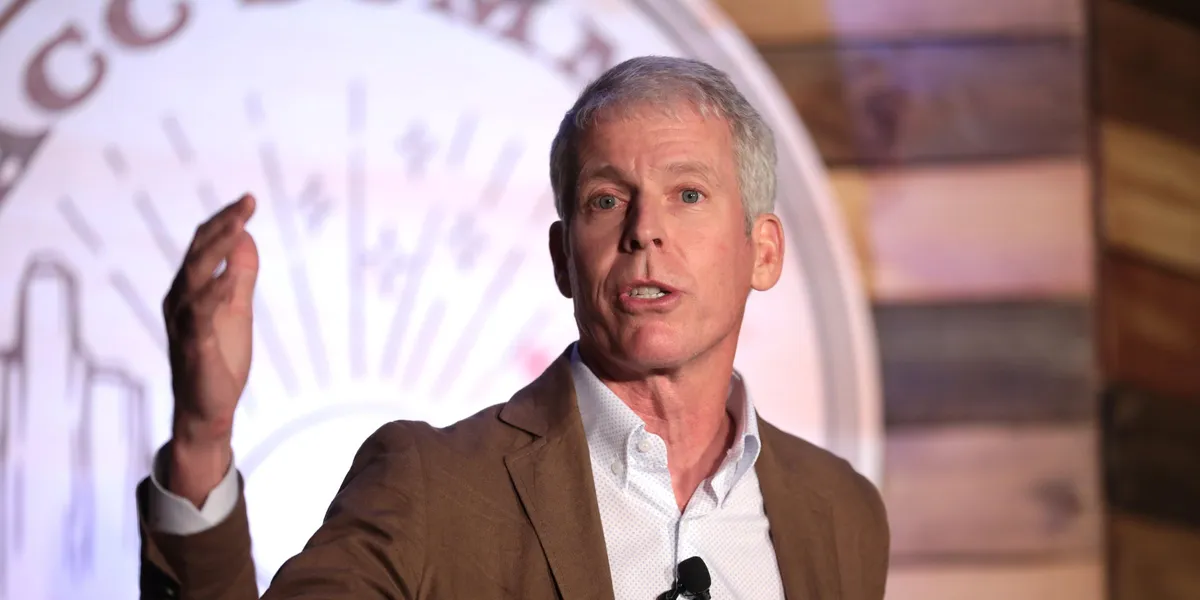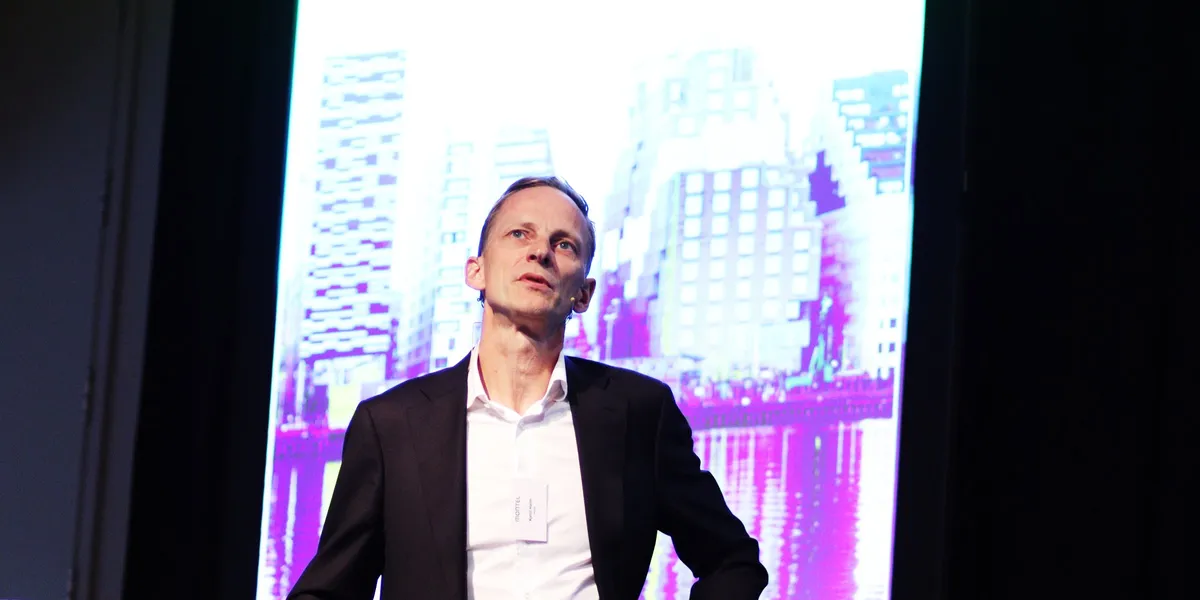There’s nothing quite like the Midwestern United States, is there? Deep-dish pizza and pop, sunsets on the water, extreme driving distance tolerance, Bob Seger, long goodbyes…
Although I confess to some bias as a Michigander, it’s easy to understand why the states surrounding the Great Lakes and their neighbors that segue into America’s heartland are among the best places on the planet.
But it’s not all Faygos and friendly conversations for Midwest utilities right now.
The region is facing all sorts of challenges posed by increasingly extreme weather, aging infrastructure, and an ongoing race to integrate renewable energy while maintaining grid reliability. State decarbonization laws add complexity to the process of bringing power generation online, and as utilities transition from fossil fuels to cleaner alternatives, they are simultaneously managing supply chain issues, labor shortages, and new cybersecurity risks. Service providers must modernize their infrastructure to satisfy increasing demand while keeping pricing affordable, which is a tall task for any-sized utility.
DTECH Midwest, a new iteration of North America’s largest transmission and distribution event, DTECH (formerly DISTRIBUTECH), will confront those conundrums and much more from July 14-16, 2025, in Minneapolis, Minnesota. Registration for the event, presented by OATI, is now open.
The three-day summit will provide a unique opportunity to explore the specific challenges the energy industry is facing in the Midwestern United States. It will feature transmission and distribution content tailored for both municipal and cooperative utilities and is bolstered by a collection of can’t-miss keynotes.
What’s on the Menu?
DTECH Midwest will begin at 1:30 pm on July 14, 2025, with a tour of OATI’s Microgrid Technology Center, a fully operational microgrid that utilizes renewable energy resources, natural gas, microturbines, and hybrid energy storage to serve the campus load. The tour offers a unique opportunity to see the OATI Data Center, which hosts solutions used by nearly every utility in North America. Attendees who add this event to their registration will also learn about multiple utility-integrated microgrid use cases and how they support utility operations.
An opening reception will follow, open to all registrants, in the exhibit hall of the Hyatt Regency Minneapolis.
July 15 starts with a keynote from Midwest utility executives about reliability, resilience, and the road ahead. Facing unprecedented electricity demand, Midwest utility executives must navigate evolving energy policies, extreme weather events, and the transition to a cleaner, more resilient power system. In this panel, leaders from Consumers Energy, Great River Energy, the Midwest Reliability Organization, and AES Utilities will share their perspectives on the most pressing challenges and opportunities shaping the region’s energy future. From grid reliability and resource adequacy to decarbonization and customer expectations, this discussion will provide invaluable insights into how Midwest utilities are adapting to change while ensuring safe, reliable, and affordable power for their communities.
The keynote features a stacked panel of esteemed speakers, including:


Hani Alarian, Executive Director of Power Systems Technology Operations – California ISO


Garrick Rochow, CEO – Consumers Energy


Sara Patrick, President and CEO – Midwest Reliability Organization


Priti Patel, Chief Transmission Officer – Great River Energy
Opening remarks will focus on leveraging the power of AI for grid operations. For all the blustering about how artificial intelligence will transform the energy industry, most tools are light on details, limited in impact, and are frankly unlikely to succeed. Crafting a sound vision for AI in energy can be elusive, and despite eagerness to leverage the power of artificial intelligence (AI) to revolutionize the energy industry and power grid operations, creating a workable vision for AI in power grid operations is challenging. The California ISO (CAISO) will share its experience in utilizing AI to transform workflows and operational processes, highlighting lessons learned that may be applicable in the Midwest and beyond.
After a jam-packed day of conference sessions, workshops, peer-to-peer discussions, and roundtables, July 16 kicks off with another impactful keynote panel, this one focusing on the policies and progress of Midwest utility regulators. Grace Relf, policy researcher at Lawrence Berkeley National Laboratory, will moderate. Speakers include Katie Sieben, Chair of the Minnesota Public Utilities Commission, Dan Scripps, Chair of the Michigan Public Service Commission, and Doug Scott, Chair of the Illinois Commerce Commission.
The event will conclude in the afternoon on July 16 with a final keynote on covering the Midwest “energy beat,” with commentary from two established reporters who focus on the region: Dan Gearino of Inside Climate News and Jimmy Lovrien of Duluth News Tribune.
DTECH Midwest Core Topics
Much of the content at DTECH Midwest will be focused on the following topics:
Advanced distribution operations: How advanced distribution operations and tools, including DERMS and Advanced Distribution Management Systems (ADMS), are working to manage and control the future grid through orchestration and flexibility on both the distribution and transmission systems.
Advanced Metering Infrastructure (AMI): Focusing on the critical role AMI plays in enhancing grid operations, optimizing energy usage, and improving customer engagement. Sessions will cover the utilization of real-time data, outage management, advanced billing systems, and integrating AMI with other smart grid technologies. Attendees will gain insights into cutting-edge AMI deployments, innovative use cases, and strategies for leveraging AMI to drive operational efficiency and customer satisfaction.
Artificial Intelligence (AI): This topic will explore how electric utilities are leveraging AI throughout their organization, from the grid edge to executive offices. It will examine how AI can (and is) being implemented by Midwestern utilities to optimize operations and explore potential future use cases.
Asset management: Effective utility asset management strategies are crucial for ensuring the consistent reliability and resilience of transmission and distribution grids, encompassing storm and disaster management, vegetation management, outage management, and other key areas.
Communication networks: Communication network strategies and modernization plans for electric utilities, including private LTE adoption and integration, mesh networks, automation, field area networks, wide area networks, and more.
Cybersecurity: Covering the implementation of cyber and physical security frameworks, asset security standards for distributed energy resources, software integration considerations, and NERC CIP requirements for the bulk power system.
Grid modernization: The fortification of the distribution and transmission grids through physical infrastructure investments and software to improve system operability and resilience. Subtopics include system hardening, undergrounding, ADMS, AMI, grid-enhancing technologies (GETs), and non-wires alternatives (NWAs).
Interconnection: Tackling the challenges and advancements in connecting distributed energy resources (DERs) to the grid, streamlining the interconnection process, maintaining grid reliability, integrating renewable energy, meeting regulatory requirements, and more. Attendees will gain insights into innovative tools, technologies, and strategies that ensure a seamless and efficient interconnection process while supporting grid resilience and sustainability.
Municipal and cooperative utility operations: This track focuses on the operational priorities of public power and cooperative utilities, including grid modernization, resource management, integrating distributed energy, and enhancing member and community engagement. Dive into tailored sessions that highlight innovative approaches to improving reliability, maintaining cost-effectiveness, and navigating the evolving energy landscape.
Policy and regulation: Regulated utilities rely on supporting and complying with sound policies in order to fulfill obligations to customers and facilitate the energy transition. This topic focuses on the local, state, and federal policies that govern transmission and distribution utilities.
Reliability and resilience: Above all else, transmission and distribution utilities are charged with maintaining safe and reliable power grids. Fulfilling that mission requires a nuanced examination of both distributed energy resources and the bulk power system, as well as the intersection of the two. This topic centers on how DERs are utilized to mitigate outages, defer network upgrades, enhance bulk power operations, improve reliability, and inform system planning.
Transportation electrification: Electric vehicles, both residential and fleet, present near and long-term challenges for transmission and distribution utilities, including hardware integration, system planning, and managed charging. This topic will cover how transportation electrification impacts the grid, as well as the solutions available to ease and facilitate the transition.
Reserve your spot today!








